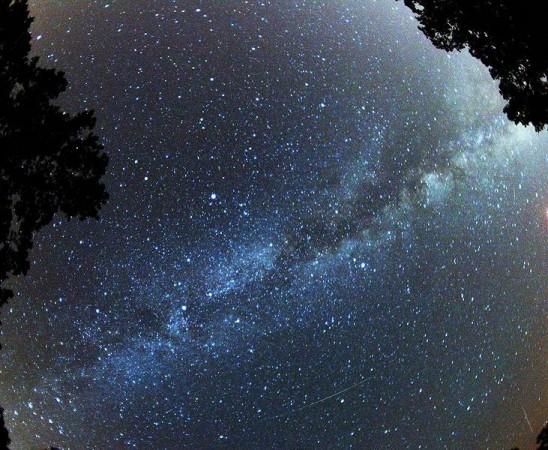
Stargazers will be treated with the annual Perseid meteor shower that is expected to peak on 11 and 12 August. Meteors, also called shooting stars, are bright streaks of light that shoot across the sky.
The meteor showers like Perseid and Leonids are the biggest and most famous of all the showers.
The Perseids shower occurs in July end and August with one meteor an hour crossing the skies and by the 10 August up to 15 meteors an hour can be seen on a clear sky, the Met Office said in a statement.
"The Perseids will be most visible between the 12 and 13 August. The peak dates to see the Perseid meteor shower are between the 11-12 August when up to 100 meteors an hour can be seen."
During 11 and 12 August night, maximum shooting stars activity will be witnessed with over 100 Perseids per hour expected to cross the sky. Reports suggest that this year's Perseid meteors will be very impressive.
"The Perseid meteor shower peaks this year when there's almost no moon, affording a dark sky for late-night meteors spectators and counters. A thick waxing crescent moon sets around mid-evening, posing little interference to this year's showers," Amit Purandare, president of Pune-based Aastronomica Club, told The Times of India.
"This event is for the unaided eyes, and enthusiasts will be able to see the meteor shower in the north-eastern part of the sky. The view will be even better with a pair of binoculars," he said.
This year, the shooting stars will be visible to naked eyes in several parts of the world including Asia, UK, US, Far East and Australia.
People, who are unable to view because of clouds, can watch online.
One can follow Marshall Space Flight Center in Alabama, USA, website where the event will be broadcasted live. The live coverage will start at around 9 pm EDT (06:30:00 a.m IST) and one can watch it online here / here.
People can also watch the meteor shower live from all-sky camera which is located in Japan. One can watch the clear sightings of the meteor shower on Japan skies here.

















